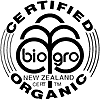Brussels, 24 January 2007
CAP reform: Fruit and vegetable reform will raise competitiveness, protect producers from crisis, increase consumption, improve environmental protection and simplify rules
The European Commission today proposed wide-ranging reforms to the Common Market Organisation for fruit and vegetables to bring this sector into closer line with the rest of the reformed Common Agricultural Policy. The proposals aim to improve the competitiveness and market orientation of the F&V sector, reduce income fluctuations resulting from crises, increase consumption, enhance environmental protection and, where possible, simplify the rules and reduce the administrative burden. The reform would encourage more growers to join Producer Organisations; offer POs a wider range of tools for crisis management; integrate the F&V sector into the Single Payment Scheme; require a minimum level of spending on environmental measures; higher EU funding of organic production and promotional measures; and abolish export subsidies for F&V. The Commission hopes that the Council and Parliament will approve the reform, which will be budget neutral, before the middle of 2007, allowing it to enter into force in 2008.
"We need to bring the fruit and vegetable sector into line with our other reforms, which were all about making European agriculture more competitive and market-orientated," said Mariann Fischer Boel, Commissioner for Agriculture and Rural Development. "Some of the aid schemes in the current scheme don't belong in the CAP of 2007, so we need to replace them with decoupled direct aid payments. One of the keys to success will be encouraging producers to work better together by strengthening the Producer Organisations. Fruit and vegetables have a crucial role to play in improving people's diets. That is why I want to encourage consumption. Finally, it's extremely important that farming does all it can to protect the environment."
Background on the fruit and vegetable sector
Fruit and vegetable production accounts for 3.1 percent of the EU agriculture budget and 17 percent of total EU agricultural production.
Over the last ten years, the sector has faced strong pressure from the highly concentrated retail and discount chains, which play a major role in setting the price, and from imported products, which are taking a growing share of the market thanks to improved quality and relatively low prices. Since the last reform in 1996, POs and their so-called Operational Programmes have been key elements in grouping supply and are effective in helping producers to face up to the retail sector. However, a high proportion of producers in some Member States still prefer not to participate.
The current CMO is also based partly on providing support to producers on the basis of the quantity of produce delivered to the processing industry, aid directly to processors and aid to the producer, via the PO, in some cases based on land area. These systems, which are not in line with the rest of the reformed CAP, cover tomatoes, citrus fruit, pears, nectarines, peaches, dried figs, prunes and dried grapes.
Proposals for reform
Producer Organisations: POs will gain greater flexibility and their rules will be simplified. Producers will be free to join different POs for each product. There will be additional support (60 percent Community co-financing rather than of 50 percent) in areas where production marketed via POs is less than 20 percent, and in the new Member States, to encourage the creation of POs. There will be extra support for mergers of POs and associations of POs. Extra support to POs operating in a trans-national scheme or on an inter-branch basis will continue. Member States and POs will develop Operational Programmes based on a national strategy. The budget for POs is currently around €700 million.
Crisis Management: This will be organised through Producer Organisations (50 percent financed by the Community budget). Tools will include green harvesting/non-harvesting, promotion and communication tools in times of crisis, training, harvest insurance, and financing of the administrative costs of setting up mutual funds. Withdrawals can be carried out by POs with 50 percent co-financing. Withdrawals for free distribution to schools, children's holiday camps, hospitals, charitable organisations, old people's homes and penal institutions will be 100 percent paid by the Community up to a limit of 5 percent of the quantity of marketed production of each PO.
Inclusion of fruit and vegetables in the Single Payment Scheme: land covered by fruit and vegetables will be eligible for payment entitlements under the decoupled aid scheme which applies in other farm sectors. All existing support for processed F&V will be decoupled and the national budgetary ceilings for the SPS will be increased. Member States will be allowed to establish reference amounts and choose which farmers will be eligible for new entitlements based on a representative period. The total amount that will be transferred to the SPS is around €800 million.
Environmental measures: The inclusion of F&V in the SPS means that Cross Compliance will be compulsory for those farmers receiving direct payments. In addition, each Operational Programme must spend at least 20 percent of expenditure on environmental measures. There will be a 60 percent Community co-financing rate for organic production in each Operational Programme.
Promotion: The World Health Organisation recommends consumption of 400g per day of F&V. Currently, only Greece and Italy reach this level. POs will be able to include promotion of F&V consumption in their operational programmes. Community co-financing will be increased to 60 percent if the promotion of F&V is targeted towards school-age children and adolescents. Market withdrawals can be distributed for free to charitable organisations, schools and children's holiday camps.
Trade with third countries: Given that world trade talks are still ongoing, the proposal does not touch on the current legal framework on external trade. However, it is proposed
that export refunds be abolished.
Simplification: The abolition of the processing aids will contribute significantly to simplification, as will the new rules on POs and the abolition of export refunds.
Simplification will be further enhanced by harmonising the basic principles relating to marketing standards for all agricultural products, including F&V.
http://ec.europa.eu/agriculture/capreform/fruitveg/index_en.htm
















